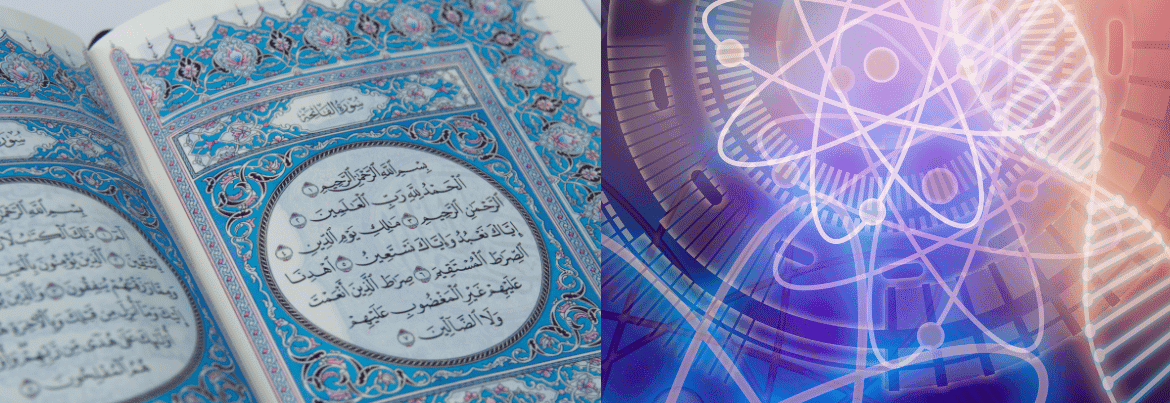
How the Quran is Compatible with Modern Science?
The Quran, the holy book of Islam, is revered by Muslims worldwide as the literal word of Allah as revealed to Prophet Muhammad (peace be upon him). Its verses encompass various aspects of human life, including spiritual guidance, moral principles, legal injunctions, and narratives of past nations. Remarkably, embedded within its timeless verses are insights that align with modern scientific discoveries, despite being revealed over 1400 years ago in a largely pre-scientific era. These harmonies between Quranic teachings and scientific knowledge offer a profound testament to the book’s divine origin and its relevance across centuries and cultures. The Quran’s compatibility with modern science extends to diverse fields such as embryology, astronomy, geology, and cosmology.
This article delves into how the Quran exhibits compatibility with various branches of modern science. We provide Quranic references to support these assertions.
-
Astronomy:
- Quranic Reference: “Do they not look at the sky above them? How We have made it and adorned it, and there are no flaws in it?” (Quran 50:6)
- Explanation: This verse invites reflection on the perfection and orderliness of the universe and indicates the absence of flaws or discrepancies. It resonates with modern astronomical findings that reveal the precise laws governing celestial bodies and their movements.
-
Embryology:
- Quranic Reference: “We created man from an extract of clay. Then We made him as a drop in a place of settlement, firmly fixed. Then We made the drop into an alaqah (leech-like structure), and then We changed the alaqah into a mudghah (chewed-like substance), then We made out of that mudghah bones, and We clothed the bones with flesh, and then We developed him into another creation. So blessed be Allah, the Best of creators!” (Quran 23:12-14)
- Explanation: This passage describes the stages of human embryonic development which resembles the modern understanding of embryology. It starts with the fertilization of the ovum (drop), followed by implantation, differentiation of tissues, and finally, the formation of bones and flesh.
-
Geology:
- Quranic Reference: “Have We not made the earth a resting place and the mountains as stakes?” (Quran 78:6-7)
- Explanation: The Quran describes mountains as stakes, implying their deep roots within the Earth. This aligns with modern geological knowledge, which elucidates how mountains have roots beneath the Earth’s surface that stabilizes tectonic plates and prevents seismic activities.
-
Oceanography:
- Quranic Reference: “He has let loose the two seas, converging together, with a barrier between them they do not break through.” (Quran 55:19-20)
- Explanation: This verse refers to the meeting of saltwater and freshwater bodies without mixing. Modern oceanography confirms the existence of such barriers, like underwater ridges, which prevent the intermingling of different water bodies, maintaining their distinct characteristics.
-
Physics:
- Quranic Reference: “And He is the One Who has created the night and the day, and the sun and the moon, each in an orbit floating.” (Quran 21:33)
- Explanation: This verse suggests the orbital motion of celestial bodies, including the sun and the moon. Modern physics affirms the concept of celestial bodies moving in orbits, governed by gravitational forces, thus reinforcing the Quranic portrayal of cosmic orderliness.
Conclusion
The Quran, while not a scientific textbook, contains verses that resonate with modern scientific discoveries across various disciplines. These references highlight the Quran’s compatibility with scientific principles and indicates its timeless relevance and depth of wisdom. This harmony is a testament to the Quran’s divine origin and an encouragement to explore the wonders of the universe through the lens of faith and reason.
Enroll in our Arabic Language or Tafseer Course to understand the Quran
